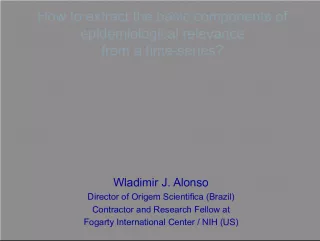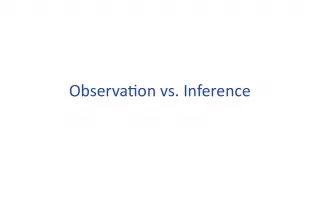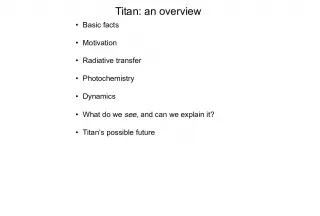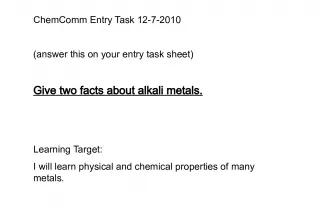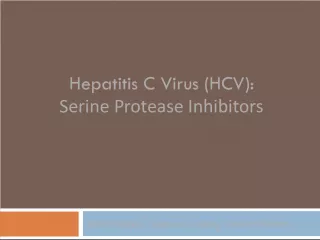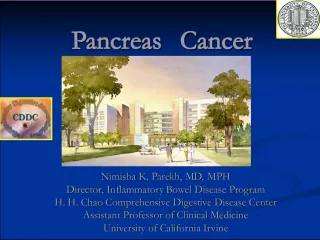Facts About Pneumonia
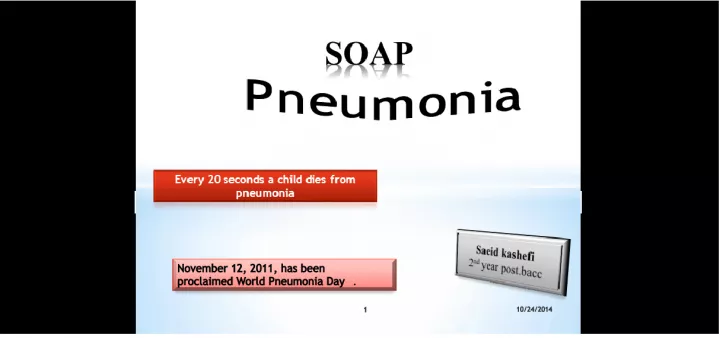

Learn about the causes and risk factors for pneumonia, a condition characterized by pus and fluid in the lungs. Anyone can get it, but some people are more susceptible. November 12th is World Pneumonia Day.
- Uploaded on | 6 Views
-
 dennis
dennis
About Facts About Pneumonia
PowerPoint presentation about 'Facts About Pneumonia'. This presentation describes the topic on Learn about the causes and risk factors for pneumonia, a condition characterized by pus and fluid in the lungs. Anyone can get it, but some people are more susceptible. November 12th is World Pneumonia Day.. The key topics included in this slideshow are . Download this presentation absolutely free.
Presentation Transcript
1. 1 10/24/2014 November 12, 2011, has been proclaimed World Pneumonia Day .
2. 2 Fluid and pus filled air space contains bacteria Fluid and pus filled air space contains bacteria
3. 3 Who Gets Pneumonia? Anyone can get pneumonia, but some people are at a higher risk than others. Risk factors include: Cigarette smoking Recent viral respiratory infectiona cold, laryngitis, influenza, etc. Difficulty swallowing (due to stroke, dementia, Parkinson's disease, or other neurological conditions) Chronic lung disease such as COPD, bronchiectasis, or cystic fibrosis Heart disease, liver cirrhosis, or diabetes Living in a nursing facility Impaired consciousness (loss of brain function due to dementia, stroke, or other neurologic conditions) Recent surgery or trauma Having a weakened immune system due to illness, certain medications, and autoimmune disorders
4. Community-acquired Pneumonia (CAP) was the 4 th leading cause of death in the world in 2012 according to the WHO and 6 th leading cause of death in the U.S. Its a Inflammation of one or both lungs. What Causes Pneumonia? The infection may be bacterial, viral, fungal. Pneumonia is extremely contagious Pneumonia can be a serious and life-threatening infection. This is true especially in the elderly, children, and those who have other serious medical problems, such as COPD, heart disease, diabetes, and certain cancers. 4 Pneumonia Pneumonia
5. 5
6. 6
7. 7 Pneumonia confirmed by chest X-ray testing. ( dense white patch ) CT scan With pneumonia, sputum is sometimes bloody Sputum Gram Stain and culture Pulse oximetry Routine lab testing CBC BMP ( basic metabolic panel ) LFTs ABG ( arterial blood gas ) Diagnosis of Pneumonia Diagnosis of Pneumonia
8. 8 How do we classify pneumonia? How do we classify pneumonia? Community Acquired CAP Health Care Associated HCAP Hospital Acquired HAP ICU Acquired ICUAP Ventilator Acquired VAP
9. 9 Treatment of Community Acquired Pneumonia (CAP) Treatment of Community Acquired Pneumonia (CAP)
10. 10 Table 116-8 Evidence-Based Empiric Antimicrobial Therapy for Pneumonia in Adults Clinical Setting Usual Pathogens Empiric Therapy Outpatient/community acquired Previously healthy S. pneumoniae, M. pneumoniae, H influenza, C. pneumoniae, M. catarrhalis Macrolide/azalide, or tetracycline Comorbidities (diabetes, heart/lung/liver/renal disease, alcoholism Fluoroqinolone d or -lactam + macrolide b Elderly S. pneumoniae, Gram-negative bacilli Piperacillin/tazobactam or cephalosporin e or carbapenem f Inpatient/community acquired Non-ICU S. pneumoniae, H. influenza, M. pneumoniae, C. pneumoniae, Legionellasp. Fluoroquinolone d or -lactam + macrolide b ICU S. pneumoniae, S.aureus, Legionella sp, gram-negative bacilli, H. influenza -lactam + macrolide or fluoroquinolone; piperacillin/tazobactam meropenem or cefepime + fluoroquinolone, -lactam + AMG + azithromycin -lactam + AMG + respiratory fluoroquinolone If MRSA suspected Above + vancomycin or linezolid Hospital acquired, ventilator associated, or healthcare associated No risk factors for MDR pathogens S. pneumoniae, H. influenzae, MSSA enteric Gram-negative bacilli Ceftriaxone or fluoroquinolone d or ampicillin/sulbactam or ertapenem or doripenem Risk factors for MDR pathogen P. aeruginosa, K. pneumoniae (ESBL), Acinetobacter sp., Antipseudomonal cephalosporin e or antipseudomonal carbapenem or -lactam/-lactamase + antipseudomonal fluoroquinolone d or AMG If MRSA or Legionella sp. suspected Above + vancomycin or linezolid Aspiration Mouth anaerobes, S. aereus, enteric Gram- negative bacilli Penicillin or clindamycin or piperacillin/tazobactum + AMG
11. 11 SOAP
12. * Bilateral pneumonia and ARDS * Right sided pneumonia * Septic shock Problem List Problem List 12
13. * C/O sudden onset breathlessness since morning (3 AM) * Associated with shivering, severe sweating Subjective Evidence Subjective Evidence 13
14. Physical Examination: * RR-35/min * SpO2-60% ( 95-100%) * RS : Right B/L basal creps+ Objective Evidence Objective Evidence 14
15. * WBC : 22.0 x10 3 cells/mm 3 * N : 90.9 (35-75)% * L : 4.9 (20-45)% Routine Biochemical Investigation Routine Biochemical Investigation 15
16. * Bilateral pneumonia and ARDS * Right sided pneumonia * Septic shock FINAL DIAGNOSIS FINAL DIAGNOSIS 16
17. 17 ETIOLOGY
18. Table 116-6 Pneumonia Classifications and Risk Factors Type of Pneumonia Definition Risk Factors Community acquired (CAP) Pneumonia developing in patients with no contact to a medical facility Age >65 years Diabetes Mellitus Asplenia Chronic cardiovascular, pulmonary, renal and/or liver disease Smoking and/or alcohol abuse Healthcare associated (HCAP) Pneumonia developing in patients not in medical facility but two or more risk factors for MDR pathogens Recent hospitalization 2 days within past 90 days Nursing home or long-term care facility resident Recent (past 30 days) antibiotic use, chemotherapy, wound care or infusion therapy either at a healthcare facility or home Hemodialysis patients Contact with a family member with infection caused by MDR pathogen Hospital-acquired (HAP) Pneumonia developing >48 hours after hospital admission Witnessed aspiration COPD, ARDS, or coma Administration of antacids or H2-antagonists Supine position Enteral nutrition, nasogastric tube Reintubation, tracheostomy, or patient transport Prior antibiotic exposure Head trauma, ICP monitoring Age >60 years See healthcare associated for MDR risk factors Same as hospital acquired 18
19. * Yes, therapy is indicated to Reduce morbidity and mortality Prevent complications and Improve quality of life. Assessment if therapy is indicated? Assessment if therapy is indicated? 19
20. Drug with Dose & Route 12/10 13/10 14/10 15/10 16/10 Generic Name Dosage form Brand Name 1 ICU 2 ICU 3 ICU 4 5 Piperacillin/ Tazobactam Inj. Tazillin 4.5 g IV Stat in 50 ml of NS over 1 hrs Over 30 min Methylprednisolone Inj. Solumedrol 40 mg in 40 ml NS Q8H Dopamine Inj. Dopamine 6 ml/hr Ipratropium (20mcg/1puff) Levosalbutamol (50mcg) Neb. Duolin Q6H Pantoprazole Tab. Pan 40mg 1-0-0 (b/f) Paracetamol Tab. Dolo 650mg SOS Chlorpheniramine Inj Avil IV 1amp SOS Ondansetron Inj. Emeset 4mg IV SOS NA Inf Na Montelukast Tab Montair Stat-1 Salbutamol (100ml) Neb Asthalin Stat Chlorpheniramine (4mg/5mL) / Dextromethorphan (10mg) Syp Aerodil 2tsp 1-0-1 Cap Becelac forte 1-1-1 20
21. 21
22. Assessment of Current Therapy 22
23. * Class : Piperacillin : extended-spectrum beta-lactam antibiotic of the ureidopenicillin class. Tazobactam : - lactamase inhibitor. * MOA : Piperacillin inhibits bacterial cell wall synthesis. Tazobactum inhibits the action of bacterial -lactamases. * Indication : is indicated for Community-acquired pneumonia (moderate severity only), Nosocomial pneumonia (moderate to severe) * Justification : It is correctly indicated according to the Infectious Diseases Society of American Guidelines on the Management of CAP in Adults. * Dose, dosage and schedule were found to be correct. * ADR : Prolongation of bleeding time, anaphylaxis, nausea, vomiting, diarrhea. Inj. Tazillin 4.5 g IV (Piperacillin/Tazobactam) Stat in 50 ml of NS over 1 hrs Days 1-5 Inj. Tazillin 4.5 g IV (Piperacillin/Tazobactam) Stat in 50 ml of NS over 1 hrs Days 1-5 23
24. * Class : Co rticosteroid drug * MOA : It inhibit the potent mediators of inflammation such as prostaglandins and leukotrienes. * Indication : It is indicated for breathlessness * Justification : It is correctly indicated as patient was having breathlessness as symptoms of pneumonia * Dose, dosage and schedule were found to be correct. * ADR : Hypercalciuria, hypokalemic alkalosis, CHF, PUC, HTN, viral infections, itching, allergic skin reactions. Inj. Solu medrol 40 mg (Methylprednisolone) in 40 ml NS Q8H DAY 1 Inj. Solu medrol 40 mg (Methylprednisolone) in 40 ml NS Q8H DAY 1 24
25. * MOA : increases blood pressure by acting on both and - 1 receptors. * Indication : It is given for the treatment of severe hypotension and septic shock * Justification : It is correctly indicated as the patient had hypotension on day 1 and septic shock * Dose, dosage and schedule were found to be correct. * ADR : nervousness, headache, dysrhythmias, palpitations, chest pain, dyspnea, nausea, and vomiting. INJ. Dopamine 6 ml/hr DAY 1 INJ. Dopamine 6 ml/hr DAY 1 25
26. * Class : anticholinergic agent/Stimulates - receptors * MOA : Ipratropium bromide : decreased contractility of smooth muscle/ Levosalbutamol : Stimulates -receptors * Indication : breathlessness. * Justification : It is indicated correctly because patient had breathlessness from day 1 * Dose, dosage and schedule were found to be correct. * ADR : tremor, tachycardia, leg cramps, dizziness, vomiting Neb. Duolin (Ipratropium (20 mcg/1puff) Levo-salbutamol (50 mcg)) Q6H DAYS 1-3 Neb. Duolin (Ipratropium (20 mcg/1puff) Levo-salbutamol (50 mcg)) Q6H DAYS 1-3 26
27. Class : proton pump inhibitor (PPI) MOA : Pantoprazole inhibit H+/K+ - ATPase enzyme Indication : for prevention of gastric irritation Justification : It is indicated to prevent gastric irritation due to poly pharmacy Dose, dosage and schedule were found to be correct. ADR : Weakness, dizziness, nausea, vomiting, anxiety, dyspnea, pain, pharyngitis, cough, arthralgia, rhinitis, chest pain, bronchitis, backache, urinary frequency, UTI, hyperlipidemia. Tab. Pan 40 mg (Pantoprazole) 1-0-0 (b/f) Day 1-5 Tab. Pan 40 mg (Pantoprazole) 1-0-0 (b/f) Day 1-5 27
28. * Class : NSAIDs (antipyretic and analgesic) * Indication : for chills (as symptoms of pneumonia) as well as RA. * Justification : It is indicated correctly because the patient had chills on day 1 and RA according to medical history. (Patient has been taking paracetamol) * Dose, dosage and schedule were found to be correct. * ADR : Bronchospasm, blood dyscrasias, centribular necrosis, liver damage, hypoglycemic coma, hepatic necrosis, liver failure, skin rashes, GI adverse effects. Tab. Dolo 650mg (Paracetamol) SOS DAYS Tab. Dolo 650mg (Paracetamol) SOS DAYS 28
29. * Class : first-generation alkylamine antihistamine * MOA : it is H1-receptor antagonist * Indication : cough, running nose (since 4 days back) * Justification : It is correctly indicated as the patient had cough * Dose, dosage and schedule were found to be correct. * ADR : Blurred vision, dry eyes, mydriasis, drowsiness, constipation, fatigue, headache, dizziness, psychomotor impairment, dry mouth, gastrointestinal disturbances. Inj. Avil IV (Chlorpheniramine) 1amp SOS Inj. Avil IV (Chlorpheniramine) 1amp SOS 29
30. 30 Inj. Emeset 4mg IV (Ondansetron) S.O.S. days 1-2 Inj. Emeset 4mg IV (Ondansetron) S.O.S. days 1-2 Class : prevent nausea and vomiting caused by cancer chemotherapy, radiation therapy, and surgery. MOA : serotonin (5HT3) antagonist Indication : given for vomiting Justification : It is given due to patient suffering from vomiting. Dose, dosage and schedule were found to be correct. ADR : Headache, dizziness, drowsiness, tiredness, or constipation may occur.
31. * Class : catecholamine (adrenergic agonists) * MOA : norepinephrine stimulates cardiac contractility. * Indication : hypotensive states, septicaemia * Justification : It is correctly indicated as the patient had hypotension and septic shock. ( Norepinephrine is used to treat shock, because it increases vascular resistance and, therefore, increases blood pressure. Other actions of norepinephrine are not considered to be clinically significant.) * Dose, dosage and schedule were found to be correct. * ADR : ausea, stomach upset, skin rash, acute toxicity. Inf. NA (Noradrenaline) day-2 Inf. NA (Noradrenaline) day-2 31
32. * Class : leukotriene receptor antagonist * MOA : Montelukast selectively antagonizes LTD4, preventing smooth muscle contraction. * Indication : breathlessness * Justification : This reduces the bronchoconstriction caused by the leukotriene, and results in less inflammation * Dose, dosage and schedule were found to be correct. * ADR : Angioedema, headache, restlessness, abdominal pain, agitation, oedema, allergy anaphylaxis. Tab. Montair (Montelukast) Stat-1 DAY- 1 Tab. Montair (Montelukast) Stat-1 DAY- 1 32
33. * Class : 2 - agonist * MOA : direct-acting sympathomimetic which producing bronchodilating effects. * Indication : breathlessness * Justification : It is given correctly as the patient complained of breathlessness * Dose, dosage and schedule were found to be correct. * ADR : Fine skeletal muscle tremor especially hands, tachycardia, palpitations, muscle cramps, headache, angioedema, urticaria, hypotension and collapse. Neb. Asthalin (Salbutamol (100ml)) Stat Neb. Asthalin (Salbutamol (100ml)) Stat 33
34. * Class : Lactobacillus acidophilus 2000lacs, Folic acid 1.5 mg, Vit.B12 15 mcg ,Niacinamide 100 mg, Calcium pantothenate 50 mg, Biotin 100mcg. * MOA : It helps to prevent harmful bacterial growth. * Indication : Used For vitamins and minerals deficiency due to diarreha. * Justification : It is given correctly as in cases of mild Antibiotic induced diarrhea. * Dose, dosage and schedule were found to be correct. Cap Becelac forte 1-1-1 day 4-5 Cap Becelac forte 1-1-1 day 4-5 34
35. * Class : Antitussive agent * MOA : Chlorpheniramine is an H1-antagonist. Dextromethorphan acts as antagonist to the NMDA glutamatergic receptor * Indications : used for treatment and prevention of cough. * Justification : correctly indicated as patient suffered from cough. * Dose, dosage and schedule were found to be correct. * ADR : Dependency, dizziness, drowsiness, vomiting, restlessness, mental confusion, excitation Syrp. Aerodil (Chlorpheniramine (4mg/5mL)/ Dextromethorphan (10mg)) 2 tsp 1-0-1 day 4 Syrp. Aerodil (Chlorpheniramine (4mg/5mL)/ Dextromethorphan (10mg)) 2 tsp 1-0-1 day 4 35
36. PLANNING 36
37. * Eradication of the offending organism through selection of the appropriate antibiotic and complete clinical cure * To decrease morbidity and mortality * To prevent complications * To relieve patient symptoms * To improve quality of life Goals of Therapy Goals of Therapy 37
38. Monitoring Parameters Monitoring Parameters Therapeutic Monitoring Therapeutic Monitoring Toxicity Monitoring Toxicity Monitoring vitals, RR, SpO2- chest Xray RS :B/L basal creps+, WBC: plateleate vitals, RR, SpO2- chest Xray RS :B/L basal creps+, WBC: plateleate Electrolytes Heart rate Fatiguability Pedal edema Jaundice Input/output Electrolytes Heart rate Fatiguability Pedal edema Jaundice Input/output 38
39. * Patient having high TSH which indicated for hypothyroidism. * Blood urea nitrogen level * Ondansetron is not for preventing nausea or vomiting that is caused by factors other than cancer treatment or surgery. Points to Physician Points to Physician 39
40. Points to the patient: You have infection in your lung and it can be treated if you adhere to your therapy. It is contagious which can be spread easily. Hence care must be taken. Points to Patient Points to Patient 40
41. How to Strengthen Your Lungs After Having Pneumonia Method 1: Performing Breathing Exercises 1-Practice deep breathing. 2-Do pursed-lip breathing. 3-Try breathing from your diaphragm 4-Practice huff-cough breathing. Life Style Modification Life Style Modification 41
42. 42 At Home * Rest as much as possible to help speed your recovery. * Drink plenty of fluids throughout the day. * Take the entire course of any prescribed medications. * Get enough vitamins and minerals.
43. 43 Tab pan 40 mg 1-0-0 Tab tazillin 4.5 gm Q8h Syr aerodil 2tsp 1-0-1 Tab dolo 650mg sos Points to Patient on Discharge Medication Points to Patient on Discharge Medication
44. 44 * It is antibiotic which is indicated for treatment of pneumonia. * It should be taken one tablet each every 8 hours. * You may have nausea, vomiting and diarrhea as side effects. Tab tazillin 4.5 gm Q8h Tab tazillin 4.5 gm Q8h Tab pan 40 mg 1-0-0 Tab pan 40 mg 1-0-0 * It is indicated to prevent gastric irritation due to multi drugs. * One tablet should be taken 30 min. before breakfast. * You may have weakness, dizziness, nausea, vomiting or anxiety as side effects.
45. 45 * It is indicated to reduce your cough. * It should be taken 2 tea spoon each 12hours. * You may have dizziness, drowsiness, vomiting, restlessness as side effects. Syr aerodil 2tsp 1-0-1 Syr aerodil 2tsp 1-0-1 Tab dolo 650mg sos Tab dolo 650mg sos It is indicated for your Rheumatoid Arthritis. You should take it whenever there is pain in your joints. You may have nausea, vomiting and diarrhea as side effects.
46. * To review SOS Follow up/Review Follow up/Review 46
47. 47



![Exploring [Topic]: Answers, Facts, Opinions, and Resources](/thumb/20000800/exploring-topic-answers-facts-opinions-and-resources.jpg)
